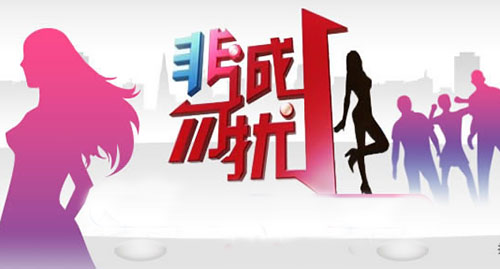SHUTING LI WRITES – China’s most viewed dating show “Fei Cheng Wu Rao” (“If You Are The One”) is produced by Jiangsu Satellite Television to satisfy Chinese women’s desperate need for the perfect man. And it’s a huge hit.
America’s most popular dating show, “The Bachelor” on ABC, has about 7.75 million views per episode and engages approximately 2.6 percent of America’s total population. In comparison, China’s “If You Are The One” attracts over 300 million viewers solely in China excluding the other Chinese speaking parts of the world.
The overwhelming number of applicants indicates a shift from traditional and conservative Chinese values to women desiring a place in the spotlight. Most contestants come on the show because of their lack of luck in meeting potential mates or simply because they long to be famous. Reality dating shows hold more recreational than dating value since the successful rate for the bachelors to marry the female contestants on stage is approximately 3.7 percent.
“If You Are The One” obviously tries to play cupid. Letting the female contestants get to know their Mr. Right in 10 minutes is just not sufficient. Since the dating show’s first episode in 2010, it has caused substantial bias in moral campaigns regarding youth’s values, especially in money-worshiping and materialistic desires. For example, contestant Ma Nuo, 20 years old at the time she was on stage, famously said she would rather cry in the backseat of a BMW than laugh on the back of a bicycle.
A reality show in which suitors generously and proudly present the figures in their bank account, the square footage of their houses, and the brand names of their luxurious cars, “If You Are the One” is the perfect window through which you can view the Chinese uprising social phenomena of the rich second generation and the children with China’s new money. Zhu Zhenfang, another female contestant, rejected a suitor by claiming any man who wanted to shake her hand need to pay 200,000 yuan (approx. $32,000 dollars), because she believes her future boyfriend would earn a monthly salary of the same amount. Contestant Lu Yao told the suitors, “Do not talk to me unless you are rich!”
This show definitely portrays a lot of materialistic girls who are solely looking for money in a man, rather than personality, intelligence, and humor – the top 3 dating factors that American women seek in men.
In order to prevent “Ma Nuo-ism” from exploding in the media again, the Chinese government cut the number of dating reality TV shows on air from 126 to 38. Materialism is considered the product of western culture, and the Communist party is at a bit of a loss in knowing how to respond to the superficial and salacious beauties who openly talk about personal income, luxurious pursuits, and sexual pursuits on stage. But these dating TV shows are properly classified as vulgar. The inappropriate content of social values reflects the ugly sides of materialism as the rising economy develops continuously through economic reform.
It is quite surprising that, in a sample research study by the Journalism School of Fudan University, 70 percent of female college students from 17 universities around China worry constantly about becoming a “3S” lady: single, born in the seventies, and stuck. “3S” ladies can also be called “sheng nu” or “left-over ladies.” According to the All China Women’s federation, a government organization that was founded in 1949 to defend women’s rights, sheng nu are defined as unmarried females over 27 who have failed to find a husband due to overly high expectations for marriage partners. I guess that’s why so many of my friends were desperate to get married right after college or get pregnant before they even finish their schooling. As part of the “one child policy” propaganda, in China it is widely believed that getting married between the ages of 24 and 28 is the best period of time for women’s reproduction.
Most Chinese marriages are categorized as a part of the of the socio-economic ladder ABCD system. ‘A Level’ men would want to court ‘B Level’ women (those with a regular job and a bachelor’s degree), because ‘B Level’ women are often more attractive, younger, and easier to control. Chinese men would step down to look for their potential mates, while Chinese women would marry up in order to better their current standard of living. This courting pattern leaves ‘A Level’ women to become “left-over ladies,” who are well-educated and have great careers, but lack a husband.
In China’s patriarchal society, traditional Confucian doctrines compliment women who are uneducated and virtuous. Chinese women are valued in their appearance and age more than in their pursuit of higher education.
As a Chinese girl whose mother has been worrying about my marriage situation since I turned 18, I sincerely hope that “left-over” ladies can live a confident, happy life, and be brave enough to step out of their comfort zone and defy the social norm. I also hope that one day the Chinese will be able to realize that daughters are just as good, productive, and filial as sons. After all, don’t we all deserve a chance at true love?


This show is so good it takes you to a different world and a better understsnding of wonderful China and the beautiful and very honest and down ti earth girls . Naushad Ladhu . New York.